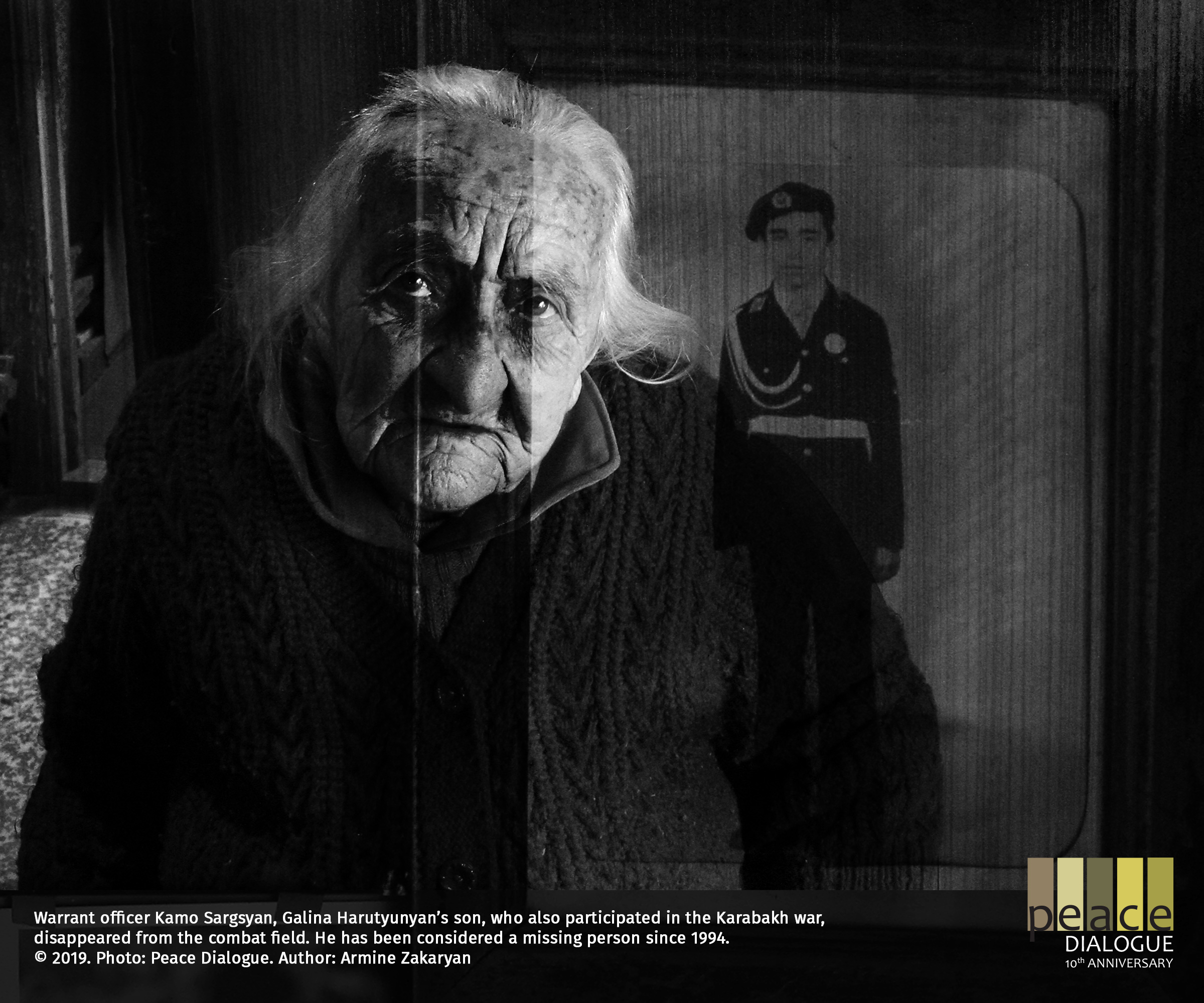
© 2019. PHOTO PEACE DIALOGUE NGO. AUTHOR: ARMINE ZAKARYAN
There is very little constructive public discussion on the legacy of the recent violent past in the context of the Nagorno-Karabakh conflict. Mainstream narratives in the societies foster collective memory that leaves little space for alternative understandings of history and a variety of ‘truths’.
The Karabakh Conflict Archive is a non-governmental initiative to create a collection of materials reflecting the history of the Nagorno-Karabakh conflict. The project is being implemented by civil society organisations interested in collecting a range of sources that help preserve the memory of how the Nagorno-Karabakh conflict evolved and what people lived through. The project responds to a perceived need for more inclusive archival source material that documents the Nagorno-Karabakh conflict, and that represents a range of experiences that span conflict divides. The project evolved as a result of four cross-conflict workshops focused on dealing with the past in the Nagorno-Karabakh conflict context, between November 2016 and January 2019, supported by the European Partnership for the Peaceful Settlement of the Conflict over Nagorno-Karabakh (EPNK).
The main objective of the Karabakh Conflict Archive is to secure material in order to strengthen an informed and meaningful historical dialogue between the conflicting parties and within their societies. The priority of this initiative is to create and preserve digital copies of unique materials from the Nagorno-Karabakh conflict context that are in danger of being damaged or lost, in order to provide access to diverse and more inclusive sources of information. These materials can later be used for a variety of purposes, including outreach, education, and to enable discussion and dialogue between different groups.
The first phase of archival collation will prioritise the years 1988-1990, with a specific focus on political unrest and the beginning of violent clashes, and on the personal archives of families of missing persons. The archive will include documents, photographs and audio-visual material.
The archive is managed by a Steering Committee, members of which represent the following organisations: Conciliation Resources, Internews Azerbaijan, Media Initiatives Center, Peace Dialogue NGO, Public Union Humanitarian Research, Stepanakert Press Club and swisspeace.



